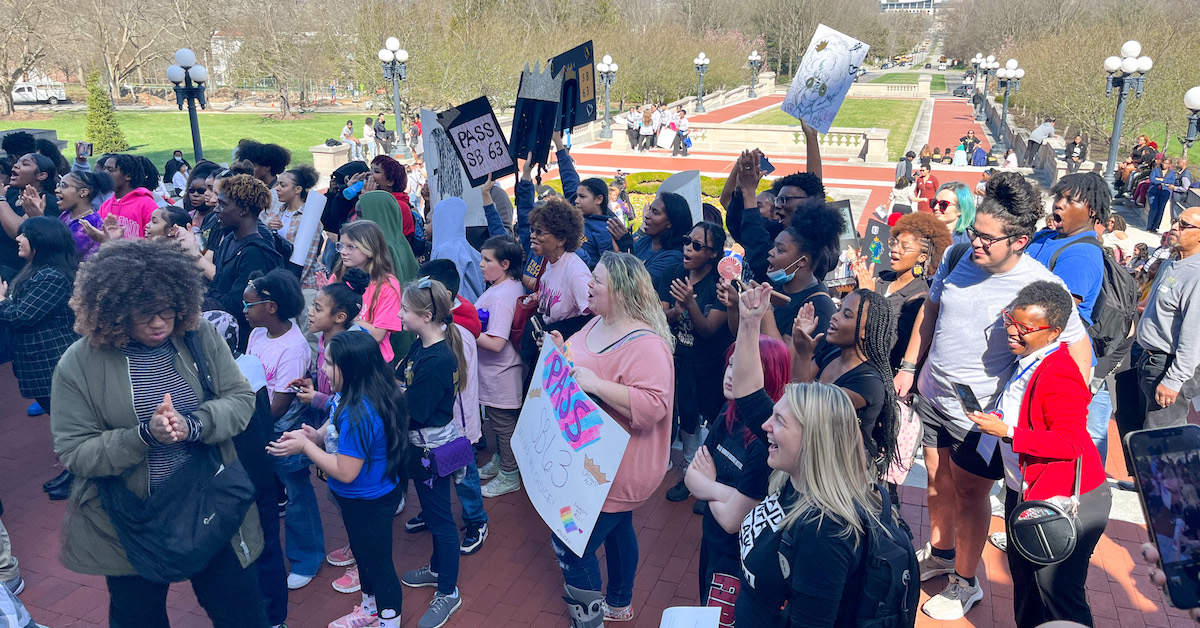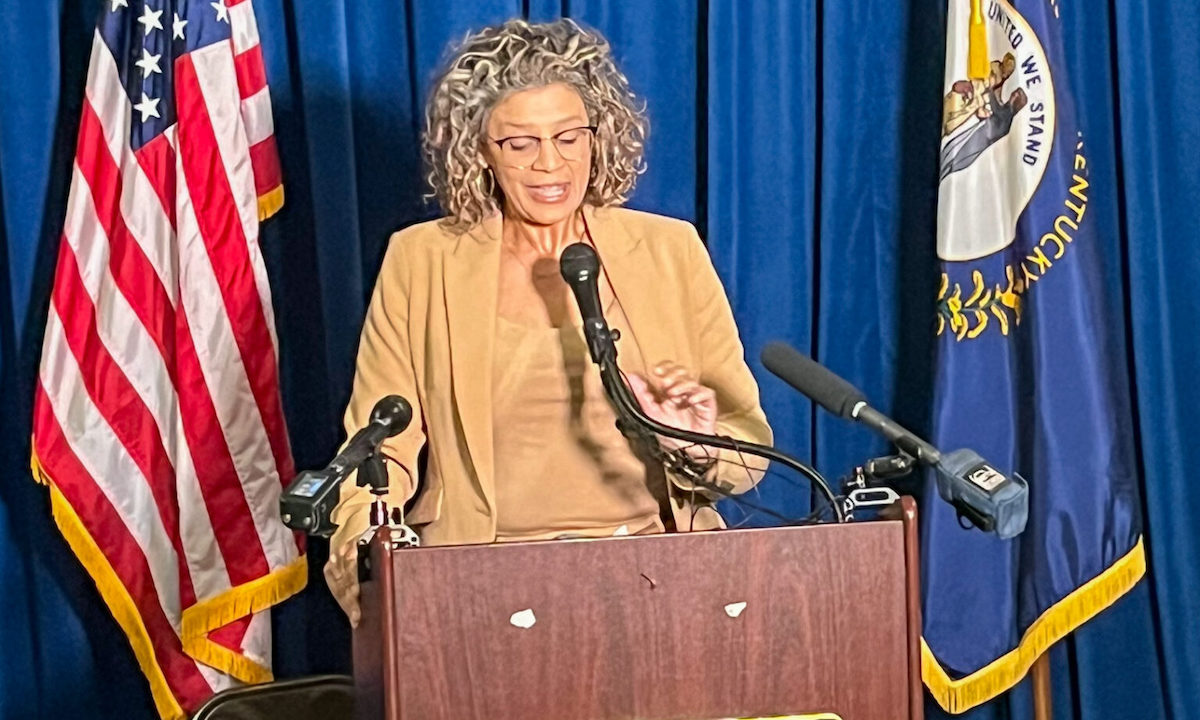FRANKFORT, Ky. — Supporters gathered on the Capitol steps Wednesday to cheer on a bill that would prohibit discrimination on the basis of braids, locks and twist hairstyles in Kentucky. Hours later the Senate passed over the bill for the fourth time.
Senate Bill 63, also known as the CROWN Act, appears to have stalled in the Senate.
House Bill 205, a version of the CROWN Act sponsored by Rep. George Brown Jr., D-Lexington, has not moved and has not been assigned to a committee for a hearing.
CROWN is an acronym for “Creating a Respectful and Open World for Natural Hair.” Supporters of the measure say Black people are often subjected to penalties and discrimination because of their hair.
A study commissioned by Dove and LinkedIn recently found:
Black women’s hair is 2.5 times more likely to be perceived as unprofessional.
Black women are 54% more likely “to feel like they have to wear their hair straight to a job interview to be successful.”
More than 20% of Black women between the ages of 25-34 “have been sent home from work because of their hair.

Twenty states have passed a form of the legislation along with more than 40 cities, according to a website for the CROWN Act. In Kentucky, Covington and Louisville have enacted local versions.
Sen. Whitney Westerfield, R-Fruit Hill, filed the bill in early February and it was approved by a committee and has been awaiting a vote in the Senate. Twelve days are left in this legislative session.
The bill would add protections against discrimination based on race-associated hairstyle or hair texture to Kentucky’s civil rights statutes and school disciplinary codes.
Westerfield said in an email Tuesday afternoon that he filed a floor amendment “in hopes of breaking the bill loose.” The amendment specifies that the bill does nothing to prohibit reasonable workplace or school safety policies.

“Waiting to discuss the floor amendment in caucus,” the senator said in a Wednesday afternoon tweet. “Tried to get to it today but debate on something else pushed us too late. Hope to discuss it tomorrow.”
Senate Majority Floor Leader Damon Thayer, R-
Georgetown, noted Westerfield’s work on the amendment after adjournment Wednesday. After that, “we’ll see if we have enough votes to pass it.”
Westerfield told a crowd of CROWN Act supporters Wednesday that it “should be one of the easiest votes that the legislature could take.”
“The hair that God gave you ought to be the hair that you get to wear,” he said.
Other speakers included Brown, the House sponsor, and people who have experienced race discrimination related to how they wore their hair.
Former state Rep. Attica Scott, D-Louisville, filed House Bill 31 last year but it did not receive a floor vote.
Jackie McGranahan, a policy strategist with the American Civil Liberties Union of Kentucky, said, “I’m hoping that we have the votes and we can get this across the finish line and this year will be the year.”
Ashley Anderson, the executive director of the Miss Black Kentucky USA Scholarship Program, told the crowd that while competing in pageants, she was often the only or one of a few women of color among the contestants. She said she was told that she would only ever place first runner-up because “they would not crown a black woman doing African dance to represent Kentucky or Miss America.”
Anderson wanted to attend the rally Wednesday because it aligned with what she believes and the scholarship program stands for. She said people who experienced discrimination should be protected under the law.
“You would like to think that we live in a world where people are able to be embraced and accepted for the way that God made them to look, right? But unfortunately it’s not always the case,” Anderson said.
‘Hair discrimination is a real issue’
On Feb. 16, Senate Bill 63, passed the Senate Judiciary committee 6-3.
During committee testimony, McGranahan joined Westerfield and told members that “sometimes Black hairstyles can be viewed as unprofessional or unkempt.”
“Hair discrimination is a real issue,” she said, “and ensuring these protections are in place for all Kentuckians is a step in the right direction towards preventing and eliminating discrimination for any reason.”
Westerfield told his colleagues in committee that his bill “protects individual dignity.” Additionally, he said, nothing about the bill will keep companies from “maintaining safety standards.”
“I think it’s important to provide these protections, for students in particular,” he said. “They shouldn’t be discriminated against because of their hair. They shouldn’t be forced to cut their hair. They shouldn’t be forced to make changes, just to address the hair that they’ve got … because it doesn’t look like mine.”
He also said he’s bringing the legislation forward for his children.
“As the father of two biracial children, who this may impact one day,” Westerfield said, “it’s important to me.”
Reporter Sarah Ladd contributed to this report.
This article is republished under a Creative Commons license from Kentucky Lantern, which is part of States Newsroom, a network of news bureaus supported by grants and a coalition of donors as a 501c(3) public charity. Kentucky Lantern maintains editorial independence. Contact Editor Jamie Lucke for questions: info@kentuckylantern.com. Follow Kentucky Lantern on Facebook and Twitter.
McKenna Horsley covers state politics for the Kentucky Lantern. She previously worked for newspapers in Huntington, West Virginia, and Frankfort, Kentucky. She is from northeastern Kentucky.






